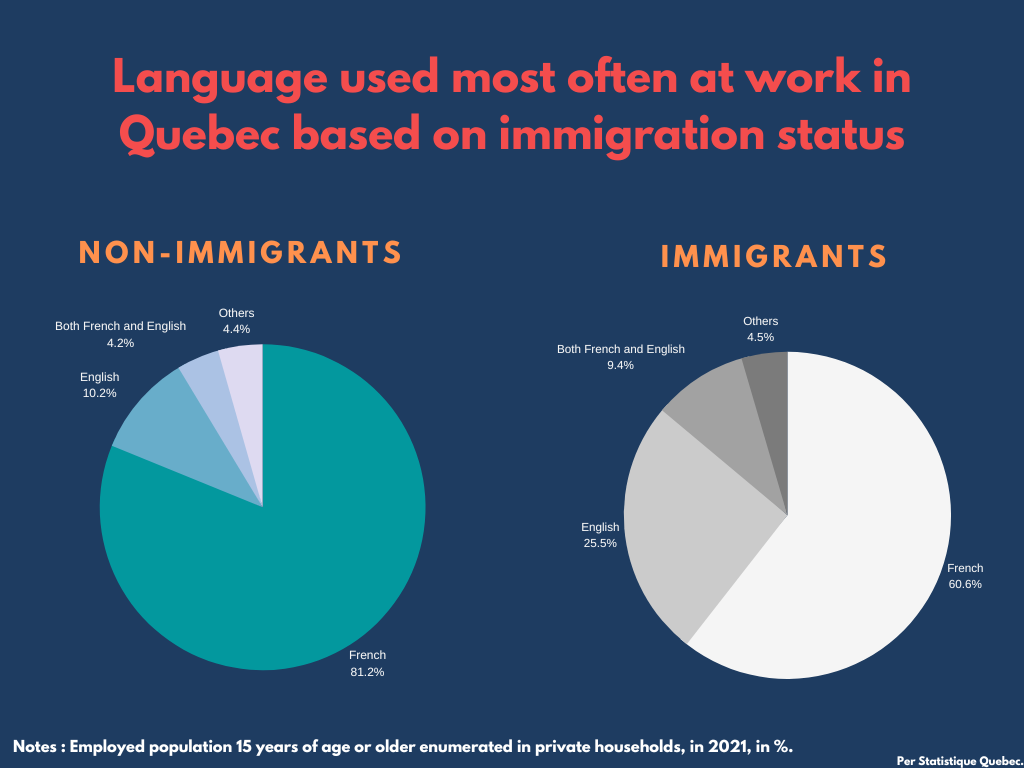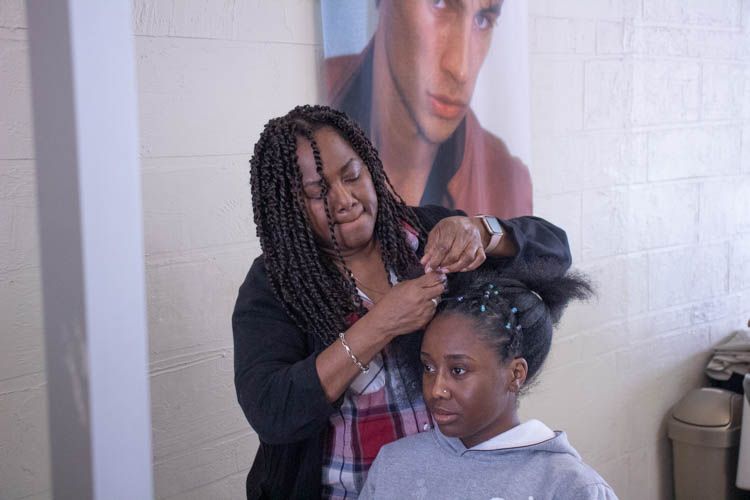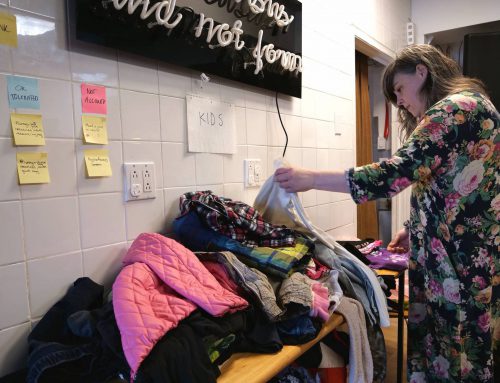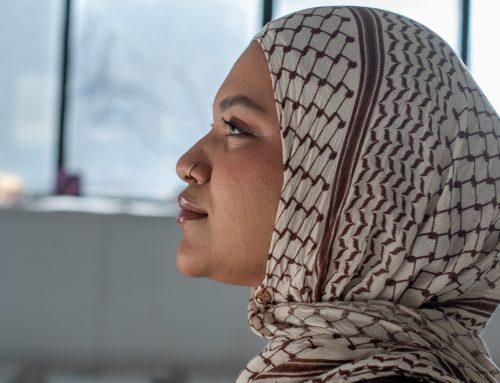BY Adrien Gaertner & Florence Ojo
Noah Ulrich is new to Montreal and came from England. The 20-year-old student got quite a shock.
“Before coming here, I never would have thought French was the primary language used here,” he says, laughing. “At first it felt weird hearing so much around me, but then you get used to it. I’m trying to learn but it is a complicated language.”
Like many students, Ulrich is actively looking for a part-time job. But his lack of French is making things difficult.

Student Noah Ulrich sitting at his desk looking for employment on his computer. Photo by Adrien Gaertner.
New non-French speaking immigrants are facing difficulties adapting to life in the province since Quebec’s new language law, Bill 96, was passed on June 1, 2022.
“I have only been here for a year but from what I can see, I have gotten very few responses from restaurants. I dropped my resume and the ones who did call me back required me to know how to speak French, and be able to talk with clients,” says Ulrich.
Immigrants are given six months to master French under the new law. This is a concern for many, especially those who have full-time jobs or who study full-time.
Some organizations do provide such services.
Executive Director at Yes Montreal, Aki Tchitakov says the most basic rule is to understand your environment and that people will need to adapt.
“Here at Yes, we have services provided for people who have some basic knowledge of French but are not comfortable enough to conduct interviews in French. We teach them to improve their vocabulary for conversations with potential employers and people they want to impress.”
Tchitakov says for everybody whose first language is not French should benefit from these services.

Statistical Pie Chart looking at the language most often used at work, based on immigration status. Graphic by Adrien Gaertner.
Ministry of Immigration Frenchisation and Integration (MIFI) Spokesperson Joseph Manning-Harvey notes that Quebec offers French courses to new immigrants. Courses in oral and written French are being offered and they are adapted to the needs of different sectors.
Manning-Harvey adds that classes are offered to people already employed who speak little or no French in order to keep their jobs and improve their mobility and versatility.
“Learning French could provide them with the opportunity to move more easily within the company or in the job market,” he says.
Some portions of Bill 96 will be implemented over time, every three to six months until 2026.
Catalina Bearnardez is the owner of a small hair salon in the mall of Cote St- Luc and has been styling hair for 27 years. She says she does not like the new language law.
“I know we have to protect the French language, but they have to let people choose and not impose anything on anybody,” Bearnardez.

Bearnardez actively styling one of her clients’ hair. Photo by Adrien Gaertner.
As Bearnardez is from Honduras, she addresses the issues she had faced with French, her third language.
“I have noticed that some people only speak French and not English, and they are still getting jobs over others who don’t know much French,” she says. “For example, sometimes I go into a store and the staff will address me in French and I ask them if they could translate into English, they say no. A million times it has happened that they don’t know how to communicate in English with me.”
“I understand that signs have to be in French, but no language should be imposed on people.”

Front view of Catalina Bearnardez’s workplace in the Cote-St-Luc mall, with a “Keratin Hair, Ask for Kathy” sign. Photo by Adrien Gaertner.
Co-owner of a family-friendly Tunisian restaurant in the Plateau, Tahar Mouli, says his majority immigrant staff and clientele could be affected by the June 2022 bill.
“My employees are for the most part Tunisians. If you tell me we can’t speak Tunisian anymore here, there would be no Kahwa Cafe,” says Mouli.
“My sandwiches won’t taste the same,” he says, pointing to his popular hand-made bread dough.

Close-up on Kahwa Cafe’s famous home-made bread dough while it is being prepared and resting. Photo by Adrien Gaertner.
Mouli says he has been running this cafe for more than 10 years now, and the culture that has grown in it is irreplaceable. He adds that Kahwa Cafe has become a hub for Tunisian immigrants, and that he would lose his clients if French became the primary language at Kahwa Cafe.
“Here, my clients come from all countries. Some of them come only to hang out and talk,” says Mouli. “If one day I decide only to hire French speaking employees, half of my clientele will go away.”
The passage of the Bill has yet to implement important changes that have really affected young adults who are not comfortable with the French language. But Tchitacov says it won’t be long before we see its effects.
“We see a gap on registration in English CEGEPs for high school graduates, restrictions on young adults that don’t make any sense and I don’t see the value of that,” he says. “All it’s going to do is it will just encourage young graduates, college-age people, to move out of Quebec and go Ontario, go to other places.”
When Kimberly Mutakati moved to Montreal from Zimbabwe, she didn’t expect to hit a language barrier. Video by Florence Ojo.




